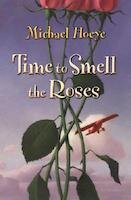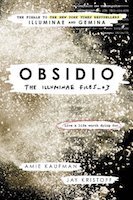Review: The Birds and Other Stories
/5 stars. MIND BLOWN. I'm officially convinced that Daphne du Maurier is my soulmate, spirit animal, favorite authoress, celebrity crush, historical hottie, best friend, sister from another mister, lady of my heart. I am determined to read every word she's written. Her words speak to my soul.
From a technical standpoint, this story collection demonstrates not only her ability to build tension and dread, but also to write from a wide variety of personalities. Her tone varies based on character / narrator - do you know how rare it is to find an author who can properly write distinct voices? I was super impressed particularly by the transition from "The Little Photographer" to "Kiss Me Again, Stranger." The tone went from a sort of languid lusciousness to clipped and short and it worked in every way.
Here are my thoughts on each:
"The Birds" - reading this felt like careening down a long, steep dip on a roller coaster, picking up speed, going faster and faster except without any sort of visible destination at the bottom. My heart rate went up. SPECTACULAR ending.
"Monte Verita" - reminded me of an episode of The Twilight Zone, or an old sci-fi film from the 70s, you know, like the ones that MST3K makes fun of? Otherwise, it captures feelings to which I relate immensely - the pure sense of escape when you immerse yourself in nature, the desire to throw everything away and reject society, the dreadful pull of conventional life paths and pursuits. "Often I wish I had the courage to throw my work aside, turn my back on the civilized world and its dubious delights, and go seeking after truth with my two friends. Only convention deterred me, the sense that I was making a successful career for myself, which it would be folly to cut short. The pattern of my life was set. It was too late to change." Also as a whole this story is definitely a metaphor for something. Or, there's a lesson here. I just don't feel like picking at it.
"The Apple Tree" - clever and funny and scary all at once. What's that you hear? Is it the beating of a hideous heart beneath the floorboards? Nope, just an apple tree to haunt you...
"The Little Photographer" - an absolutely wicked story with a trademark insufferable narrator. Full of lush imagery and delicately gutting quotes like: "A love affair should be a thing of silence, soft, unspoken. No raucous voice, no burst of sudden laughter, but the kind of stealthy curiosity that comes with fear, and when the fear has gone, a brazen confidence. Never the give-and-take between good friends, but passion between strangers..." I'll be thinking about this one for a long time.
"Kiss Me Again, Stranger" - fucking brutal. Just when I thought I'd figured it out, she pulled the rug in a way that left me feeling dumbfounded and disturbed.
"The Old Man" - well, wow. Just wow. Perfect ending to a bright and unusual collection. Extremely fun and profoundly well-written.
I think I'm so consistently shocked by du Maurier because it seems to me like her writing should feel dated or old-fashioned or unrelatable - but it is, for me, actually the complete opposite. Her writing feels fresh and new and personally relevant in a way where many modern authors fail to connect. I felt the same after reading Rebecca and I look forward to seeing where she takes me next.
The Birds and Other Stories on: Amazon | Bookshop.org | Goodreads










